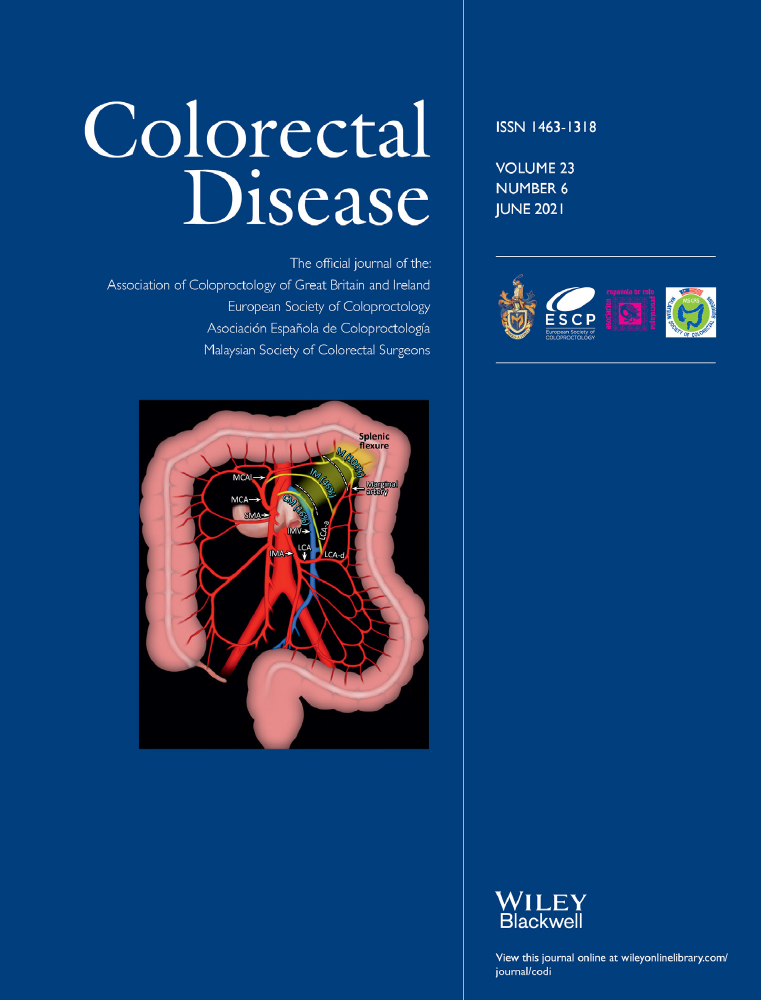Minimal invasive surgery for left colectomy adapted to the COVID-19 pandemic: laparoscopic intracorporeal resection and anastomosis, a ‘don’t touch the bowel’ technique
Abstract
Aim
The COVID-19 pandemic has forced surgeons to adapt their standard procedures. The modifications introduced are designed to favour minimally invasive surgery. The positive results obtained with intracorporeal resection and anastomosis in the right colon and rectum prompt us to adapt these procedures to the left colon. We describe a ‘don't touch the bowel’ technique and outline the benefits to patients of the use of less surgically aggressive techniques and also to surgeons in terms of the lower emission of aerosols that might transmit the COVID-19 infection.
Methods
This was an observational study of intracorporeal resection and anastomosis in left colectomy. We describe the technical details of intracorporeal resection, end-to-end stapled anastomosis and extraction of the specimen through mini-laparotomy in the ideal location.
Results
We present preliminary results of 17 patients with left-sided colonic pathologies, 15 neoplasia and two diverticular disease, who underwent four left hemicolectomies, six sigmoidectomies and seven high anterior resections. Median operating time was 186 min (range 120–280). No patient required conversion to extracorporeal laparoscopy or open surgery. Median hospital stay was 4.7 days (range 3–12 days). There was one case of anastomotic leak managed with conservative treatment.
Conclusion
Intracorporeal resection and end-to-end anastomosis with the possibility of extraction of the specimen by a mini-laparotomy in the ideal location may present benefits and also adapts well to the conditions imposed by the COVID-19 pandemic. Future comparative studies are needed to demonstrate these benefits with respect to extracorporeal anastomosis.
CONFLICT OF INTERESTS
The authors have no conflicts of interest to declare.




